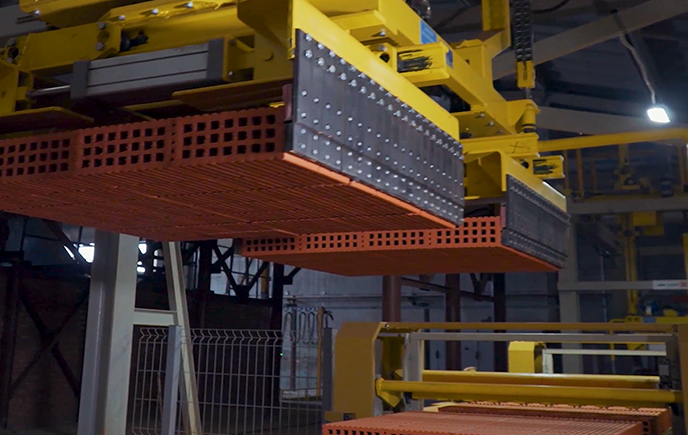Full steam ahead - Scottish distillery with Grundfos
There’s steam and there’s high-quality steam. There are pump solutions and intelligent pump solution...
Any catastrophic failure of a production asset is, well, a catastrophe. But when your only back-up option is built to exactly the same design, then that catastrophe becomes a disaster waiting to happen. And where replacing a critical asset is concerned, waiting is something you can’t afford to do.

A clay hammer mill at a brickworks had functioned for several decades in one of the dustiest and dirtiest areas of the production process, in one of the dirtiest and dustiest production environments.
However after 35 years ago it finally, catastrophically, failed – leaving production reliant on the sole back-up mill. Given that this was built to the same design, the very real worry was that its failure was also imminent.
When the mills were designed, bearing technology was very different from today. Given the high operating speeds and high loads, the OEM had no option other than designing the spherical roller bearings with oil lubrication.
In contrast to today’s typical designs, the bearings were also very large for the shaft size and the housings were cast iron.
Unfortunately, the extent of the damage made it impossible to identify the root cause of the catastrophic failure. However, the early 1980s’ design made a lack of lubricating oil the most likely culprit.
Although the bearings were stock items, the housing design had been made obsolete over 20 years ago. To add to the difficulties, original engineering scale drawings of the castings were available, but with no dimensions shown.
The customer approached a number of suppliers. Some proposed sourcing similar products, and quoted on that basis. Others proposed a new housing based entirely on the original design. The only thing these options had in common was their significant lead time.
At a time of high production demand, with no back-up, this wasn’t what the customer wanted to hear.
What ERIKS could offer which other suppliers couldn’t were in-house design and production capabilities.
Instead of simply copying the existing design and all its faults, ERIKS could design and engineer an upgraded solution based on the original drawing, eliminating its failings and outdated technology. They could also achieve this to a shorter timescale than the other proposals.
Although bearing technology has changed since the original mill was designed, the aggressive operating environment of a brickworks hasn’t. In the exceedingly dusty conditions, dust inevitably found its way into the original mill and caused problems for the components. ERIKS’ upgrade included additional features to counteract the issue.
Grease collars were incorporated to prevent airborne debris from entering the equipment. Because the high temperatures in the shaft cause expansion, a labyrinth seal system was added, to allow for shaft growth. And to facilitate the option to switch to oil lubrication, gaskets – specially cut by ERIKS Gaskets to ERIKS’ own design – were installed between the end caps and housing.
Normally, designing and manufacturing a design of this type would take at least 12 weeks. Which, with the risk of complete production shutdown looming over them, were 12 weeks the customer couldn’t afford.
Thanks to ERIKS’ in-house capabilities, the project was actually completed in just 5 weeks. And at £42,000, ERIKS’ invoice was half that of some competitors’ quotes.
Not surprisingly, the customer decided to proceed with replacing the bearing and housings on their second mill, to the same design. Such a successful and cost-effective solution for their brickworks was obviously something they wanted to build on.
Get the latest updates from ERIKS including:
Choose any or all of these via the ERIKS Subscription Centre!
Our Know+How brings together the best of the latest Know+How Hub articles in one easy to digest magazine, covering the following topics:
That's why its the leading magazine for maintenance engineers from ERIKS.
Want Know+How Magazine delivered direct to your door? Visit the ERIKS Subscription Centre to opt-in!
Take a look at our latest updates...
There’s steam and there’s high-quality steam. There are pump solutions and intelligent pump solution...
Looking for a custom Product quote? Need an answer to a Technical question? Looking for Careers/HR support? Want to work with us? Interested in our Digital Trading solutions? Have a finance question? Send us your enquiry and a member of the ERIKS team will be with you quickly.
We strive to deliver exceptional quality service and products. As part of this goal, we encourage customers to submit feedback on their experiences so we can resolve any issues and concerns.
At ERIKS we strive to deliver the best quality service and products. As part of this goal we encourage customers to submit feedback on their experiences so we can resolve any issues and concerns.
Call us: +441215086000
